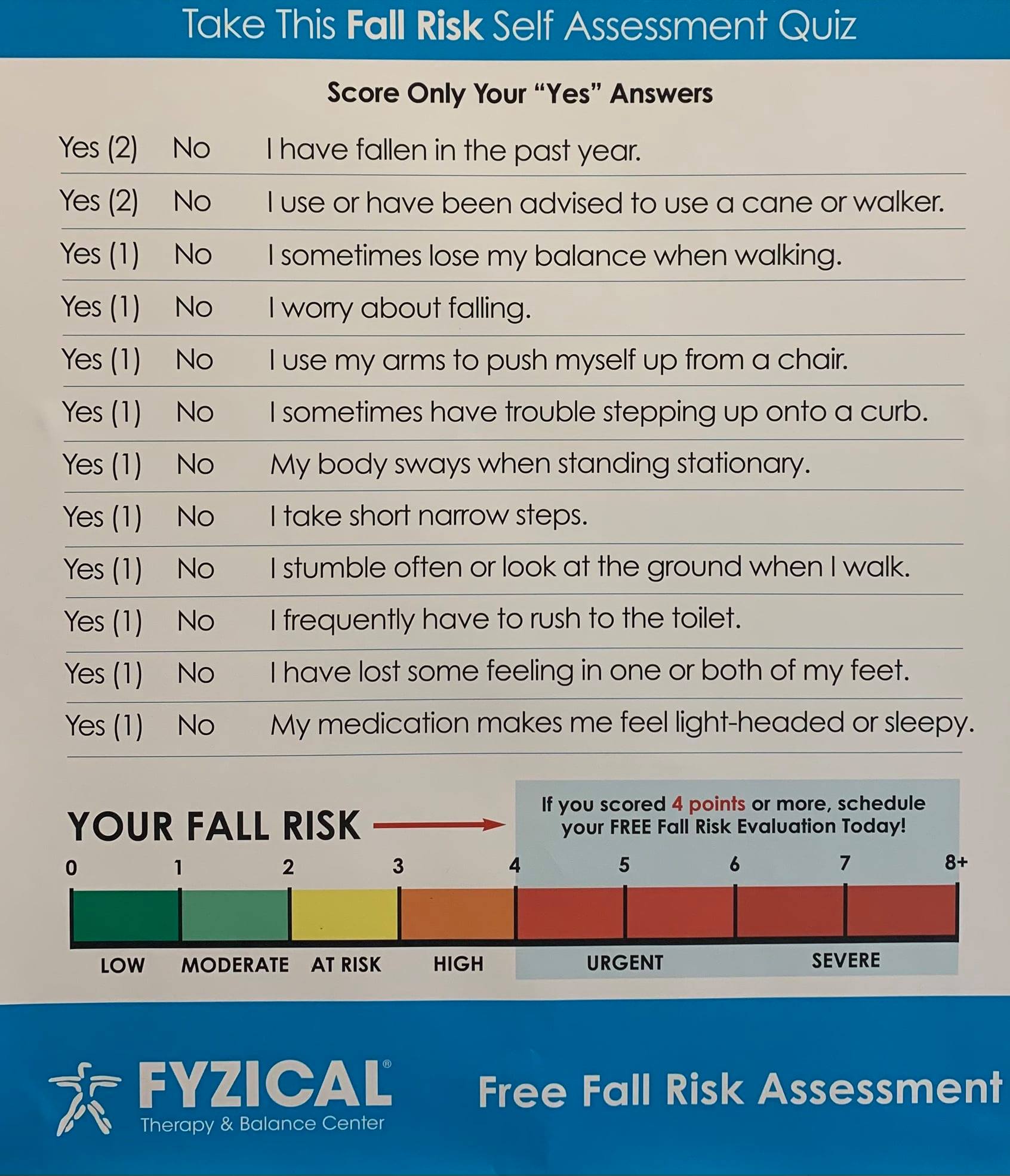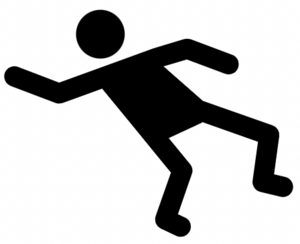Fascination About Dementia Fall Risk
Fascination About Dementia Fall Risk
Blog Article
8 Easy Facts About Dementia Fall Risk Explained
Table of ContentsExamine This Report about Dementia Fall RiskGet This Report about Dementia Fall RiskGet This Report on Dementia Fall RiskDementia Fall Risk - QuestionsNot known Details About Dementia Fall Risk
The FRAT has 3 areas: drop risk condition, risk aspect list, and activity plan. A Loss Danger Standing includes information about history of recent drops, drugs, mental and cognitive status of the client - Dementia Fall Risk.If the patient ratings on a danger aspect, the corresponding variety of points are counted to the patient's fall danger rating in the box to the far ideal. If an individual's autumn risk score completes five or higher, the individual is at high risk for falls. If the client ratings just 4 factors or reduced, they are still at some risk of falling, and the registered nurse ought to use their ideal medical evaluation to take care of all loss danger aspects as part of an all natural treatment strategy.
These common techniques, in general, help establish a secure setting that reduces unexpected falls and defines core preventative actions for all people. Indications are vital for individuals at threat for drops.
Dementia Fall Risk - Questions
For instance, wristbands need to consist of the individual's last and given name, day of birth, and NHS number in the UK. Information need to be printed/written in black against a white history. Only red shade should be utilized to indicate unique person status. These suggestions are constant with present advancements in patient identification (Sevdalis et al., 2009).
Items that are also much may need the patient to get to out or ambulate needlessly and can possibly be a threat or add to drops. Aids stop the client from going out of bed with no help. Registered nurses respond to fallers' phone call lights faster than they do to lights launched by non-fallers.
Aesthetic problems can significantly cause falls. Keeping the beds closer to the floor reduces the threat of falls and major injury. Placing the mattress on the flooring substantially lowers loss danger in some healthcare settings.
Some Known Incorrect Statements About Dementia Fall Risk
Clients that are high and with weak leg muscular tissues who try to remain on the bed from a standing placement are most likely to fall onto the bed because it's also reduced for them to lower themselves safely. Likewise, if a tall individual attempts to rise from a reduced bed without help, the client is likely to fall back down onto the bed or miss out on the bed and drop onto the floor.
They're designed to advertise timely rescue, not to stop falls from bed. Audible alarms can additionally remind the person not to stand up alone. The usage of alarm systems can additionally be an alternative to physical restraints. In addition to bed alarms, enhanced supervision for high-risk patients likewise might assist avoid drops.

People with a shuffling gait boost autumn possibilities considerably. To decrease autumn risk, shoes should be with a little to no heel, slim soles with slip-resistant tread, and support the ankle joints. Advise patient to make use of nonskid socks to protect against the feet from sliding upon standing. Nonetheless, urge patients to put on appropriate, well-fitting shoesnot nonskid socks for motion.
An Unbiased View of Dementia Fall Risk
Individuals, specifically older grownups, have lowered visual capacity. Illumination an unknown atmosphere assists enhance visibility if the person should rise during the night. In a research study, homes with ample lights record fewer drops (Ramulu et al., 2021). Improvement in lighting in your home may lower loss rates in older grownups (Dementia Fall Risk). The usage of gait belts by all health and wellness treatment look these up carriers can advertise safety and security when helping patients with transfers from bed to chair.

Sitters work for guaranteeing a secure, protected, and secure setting. Researches showed very low-certainty evidence that caretakers decrease loss threat in intense treatment healthcare facilities and only moderate-certainty that alternatives like video clip monitoring can lower sitter usage without enhancing fall risk, suggesting that caretakers are not as beneficial as originally believed (Greely et al., 2020).
Little Known Facts About Dementia Fall Risk.

Raised i was reading this physical conditioning reduces the threat for drops and restricts injury that is sustained when fall transpires. Land and water-based workout programs may be likewise advantageous on equilibrium and stride and therefore reduce the risk for falls. Water workout might contribute a favorable benefit on equilibrium and gait for females 65 years and older.
Chair Rise Workout is a basic sit-to-stand exercise that assists strengthen the muscles in the upper legs and butts and enhances wheelchair and self-reliance. The objective is to do Chair Rise exercises without using hands as the client becomes more powerful. See sources section for a thorough guideline on exactly how to carry out Chair Rise exercise.
Report this page